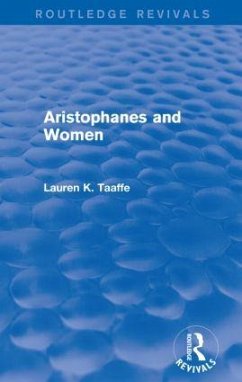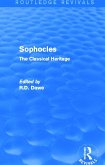Aristophanes and Women, first published in 1993, investigates the workings of the great Athenian comedian's 'women plays' in an attempt to discern why they were in fact probably quite funny to their original audiences. It is argued that modern students, scholars, and dramatists need to consider much more closely the conditions of the plays' ancient productions when evaluating their ostensible themes. Three plays are focused upon: Lysistrata, Thesmophoriazusae, and Ecclesiazusae. All seem to speak quite eloquently to contemporary concerns about women's rights, the value of women's work, and the relationships between women and war, literary representation and politics. On the one hand, Professor Taaffe tries to retrieve what an ancient Athenian audience may have l appreciated about these plays and what their central theses may have meant within that culture. On the other hand, Aristophanes is discussed from the perspective of a late twentieth-century, specifically female, reader.
Hinweis: Dieser Artikel kann nur an eine deutsche Lieferadresse ausgeliefert werden.
Hinweis: Dieser Artikel kann nur an eine deutsche Lieferadresse ausgeliefert werden.








